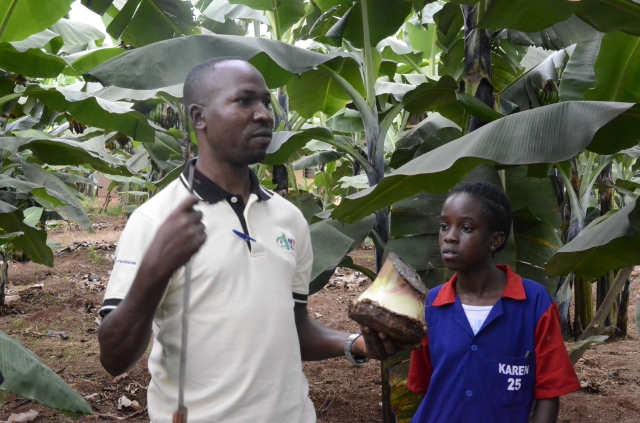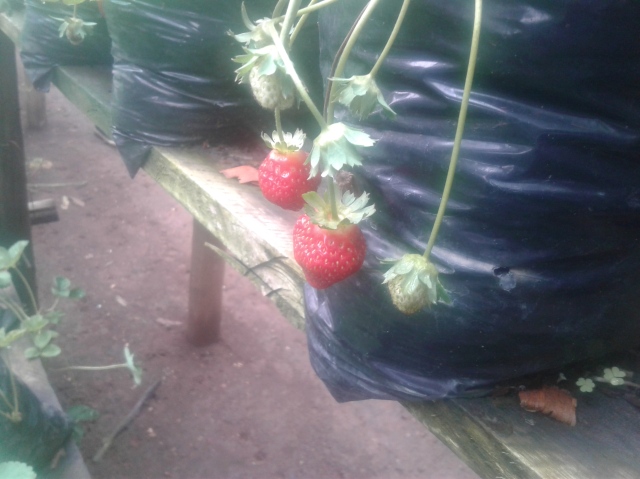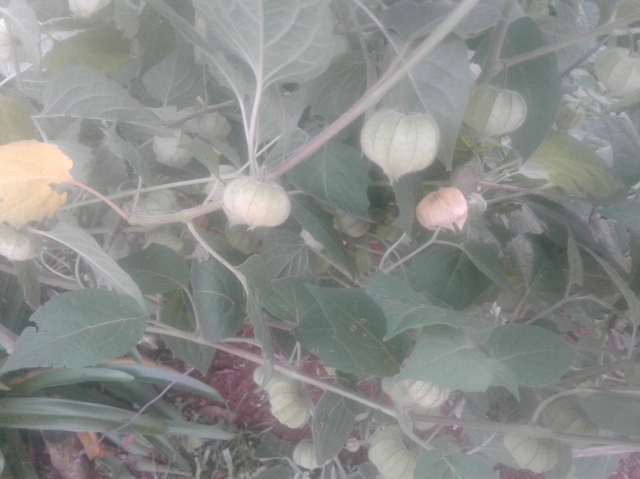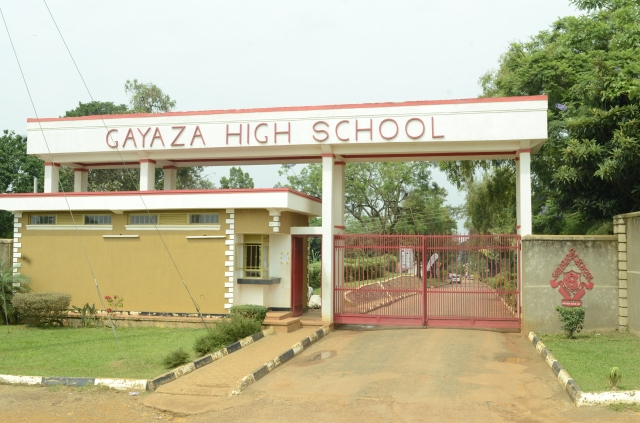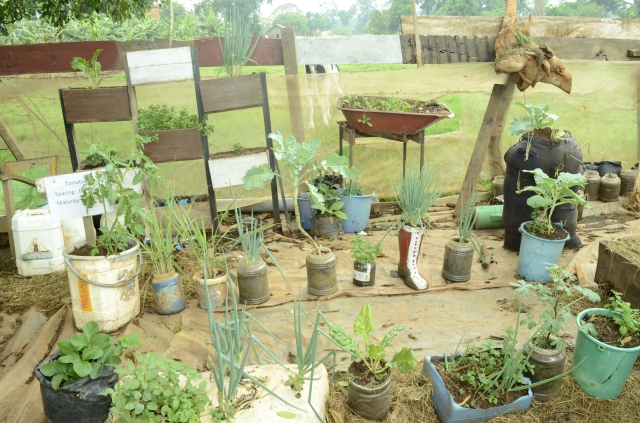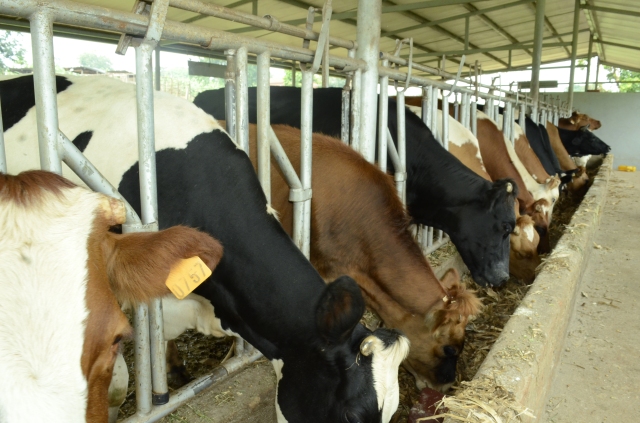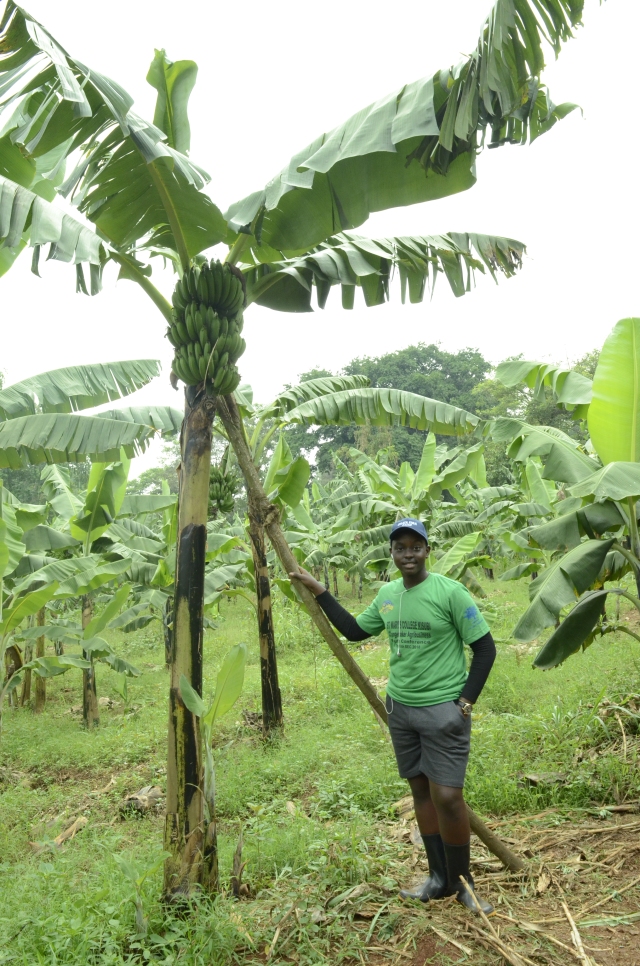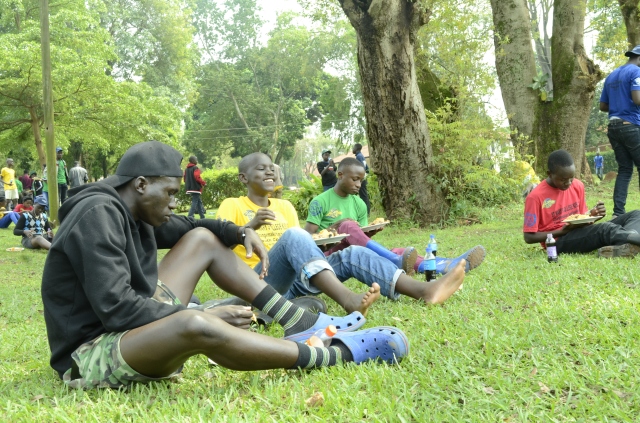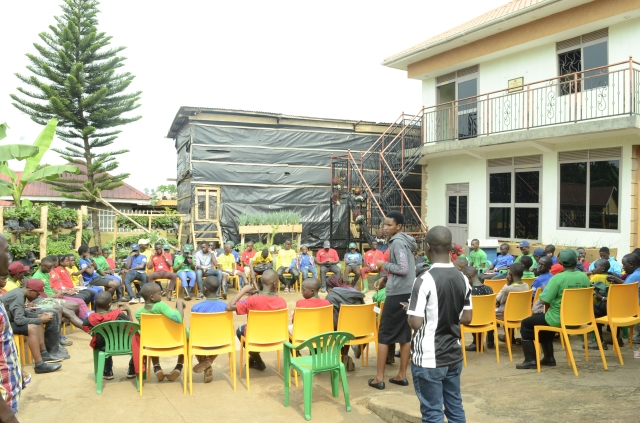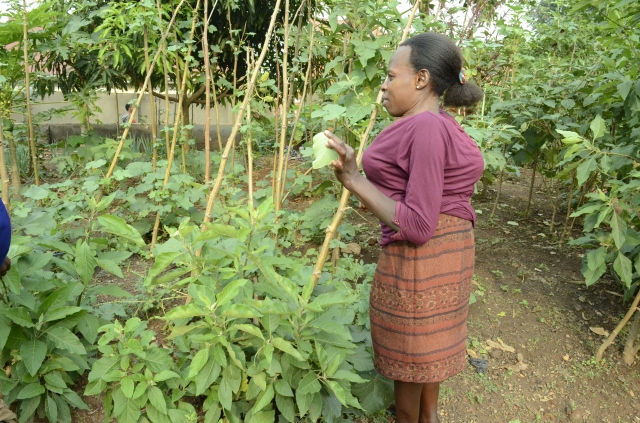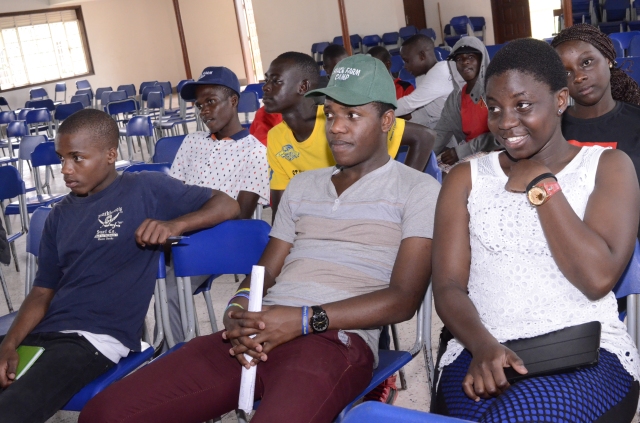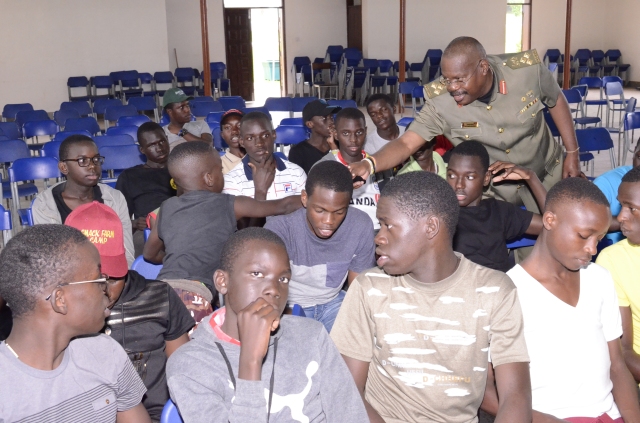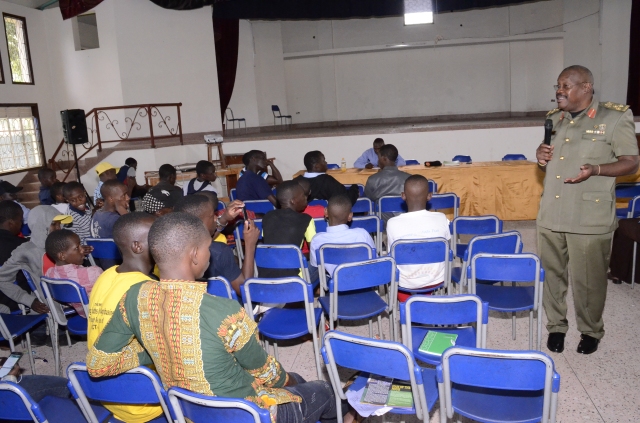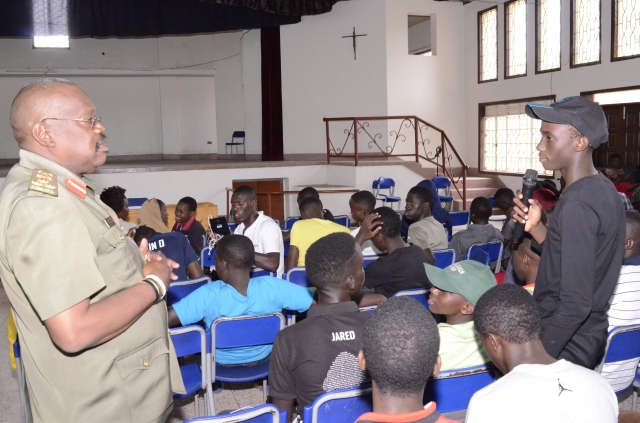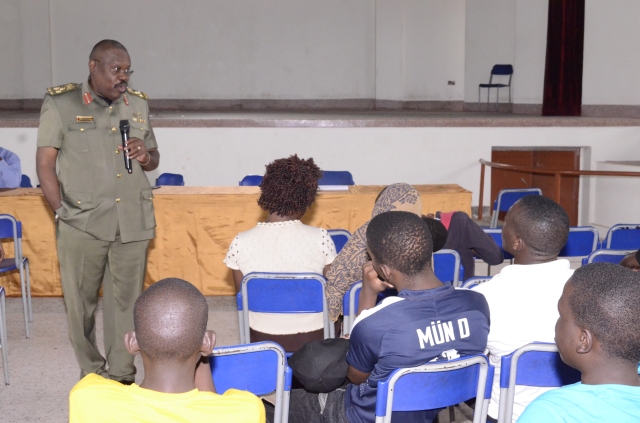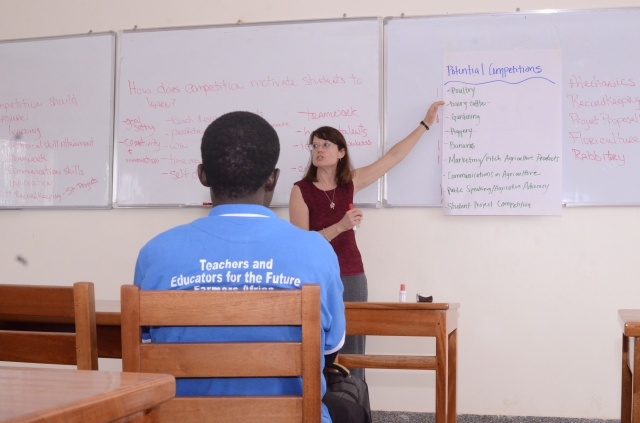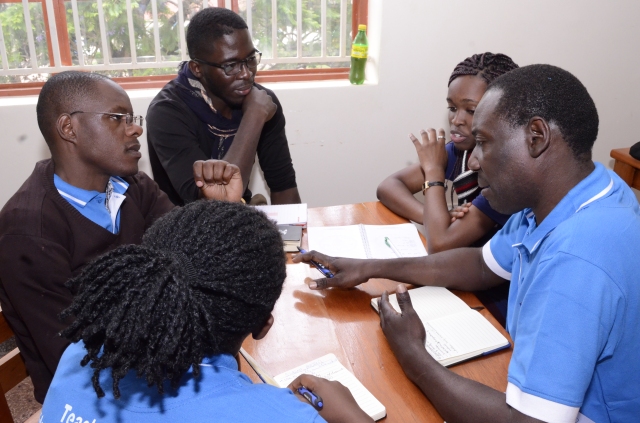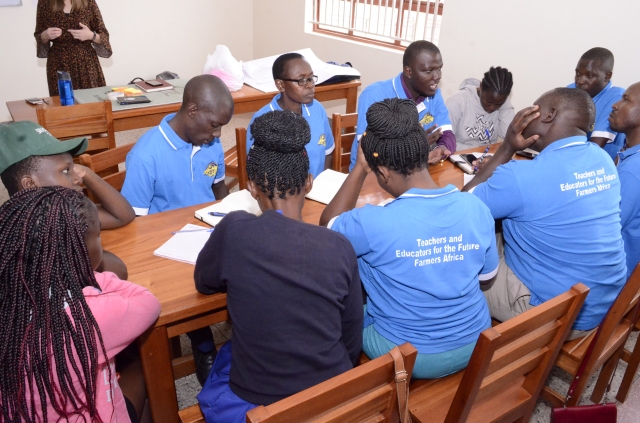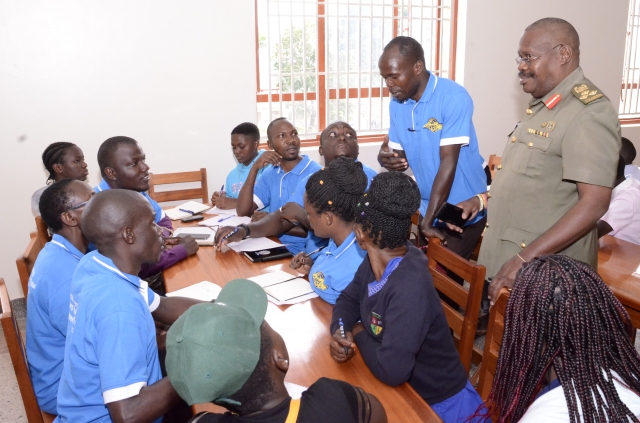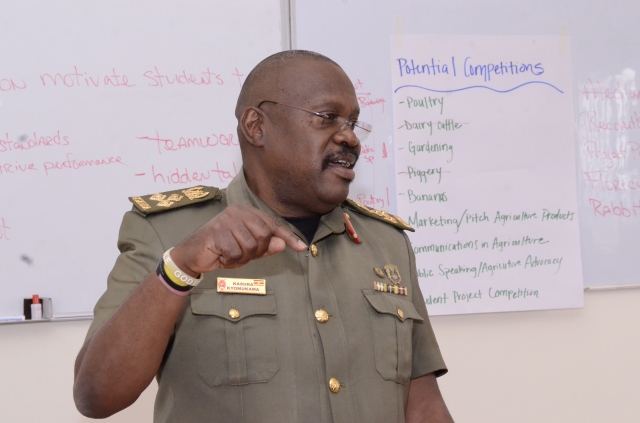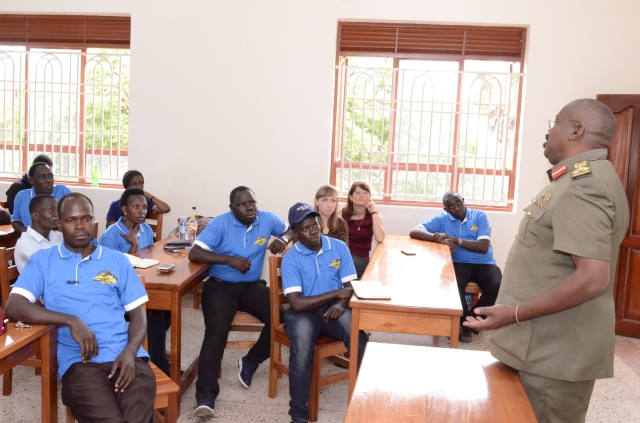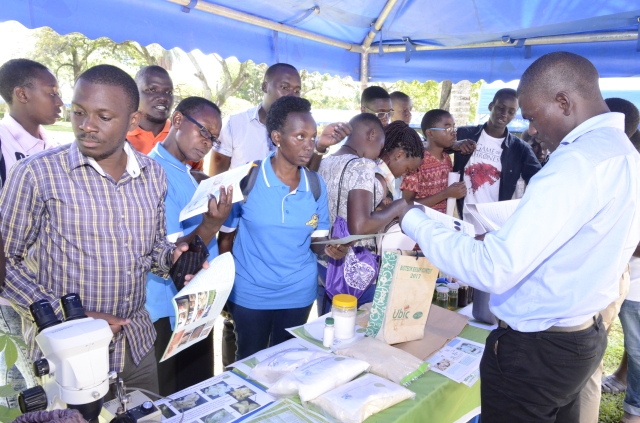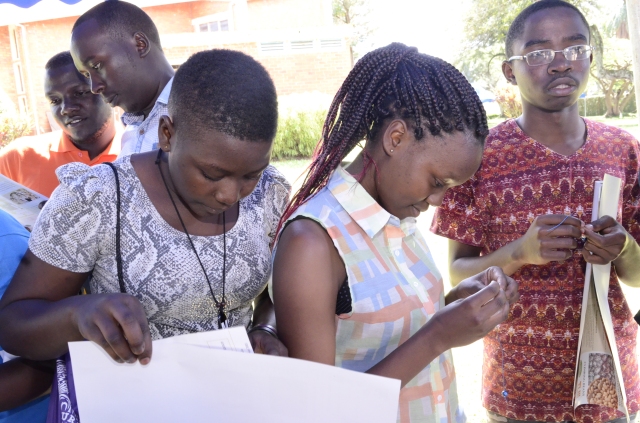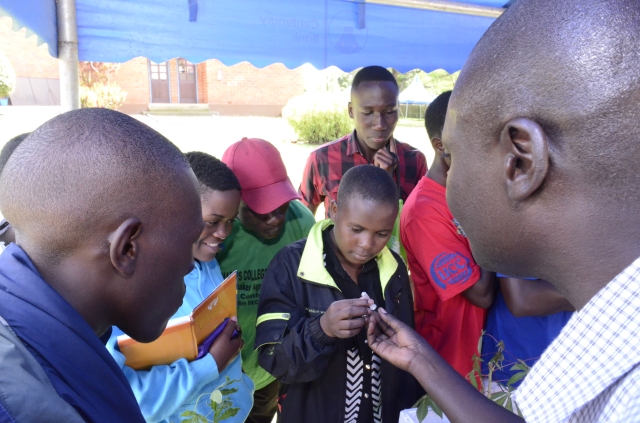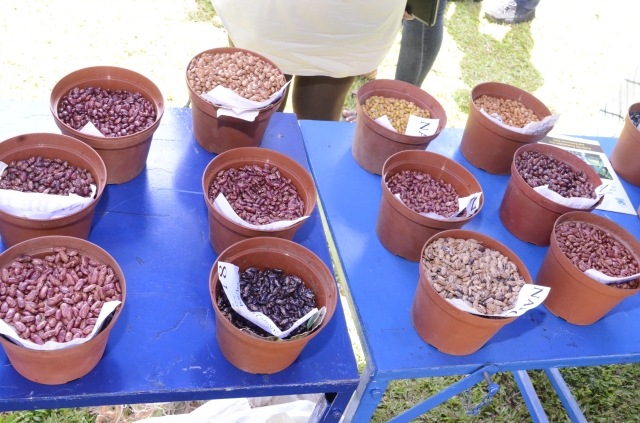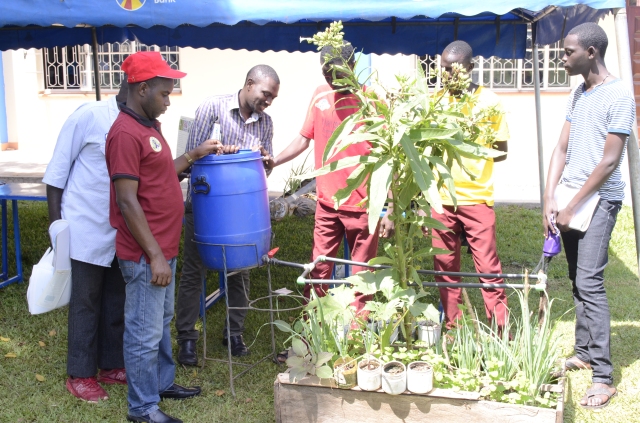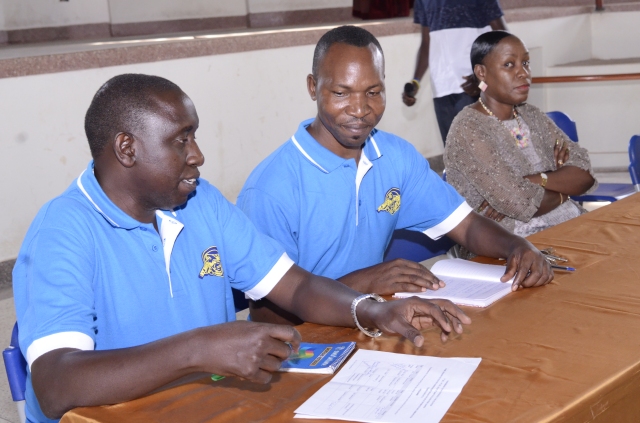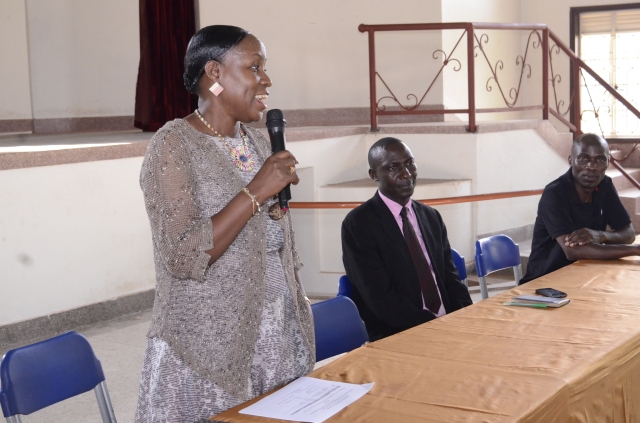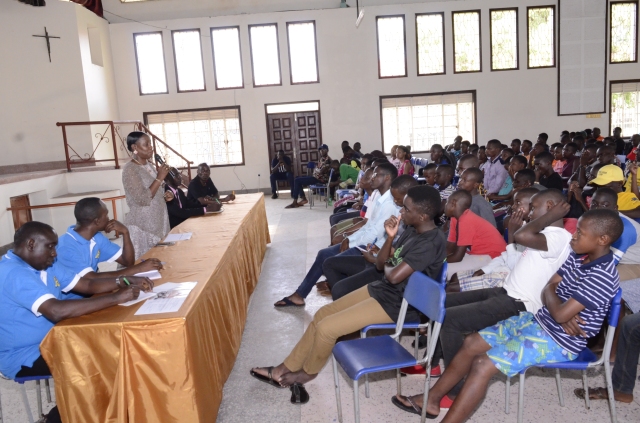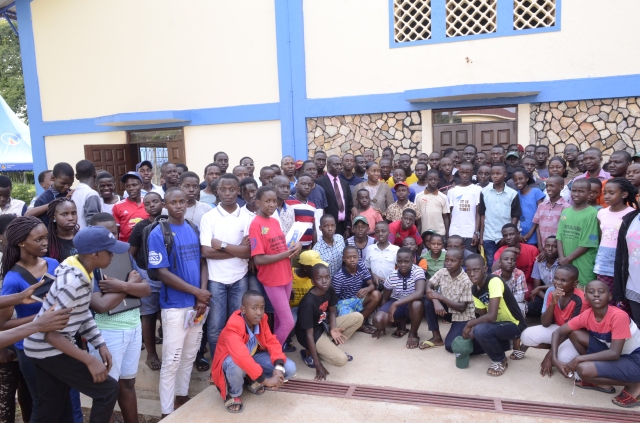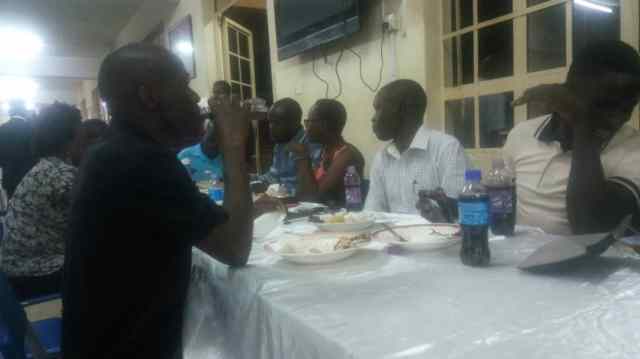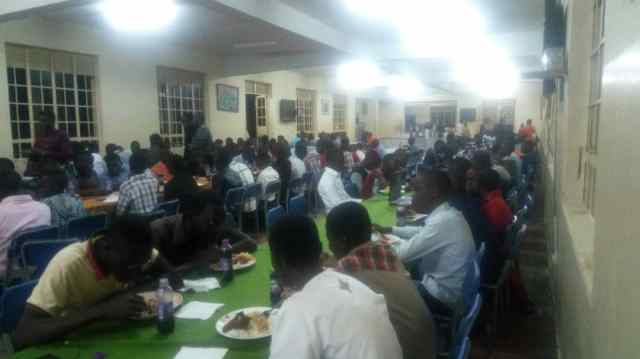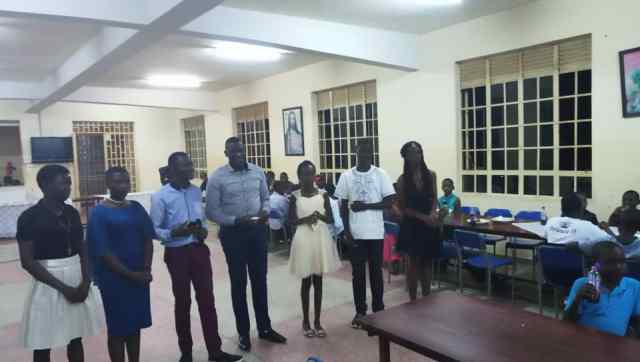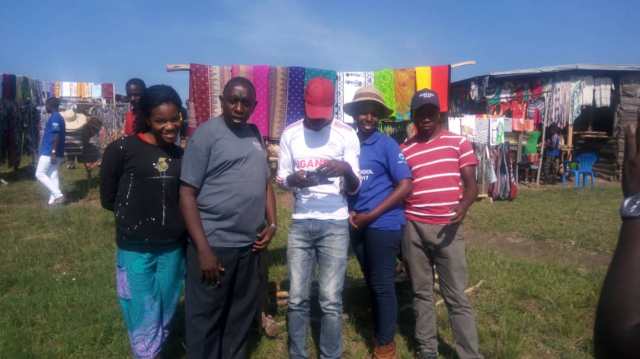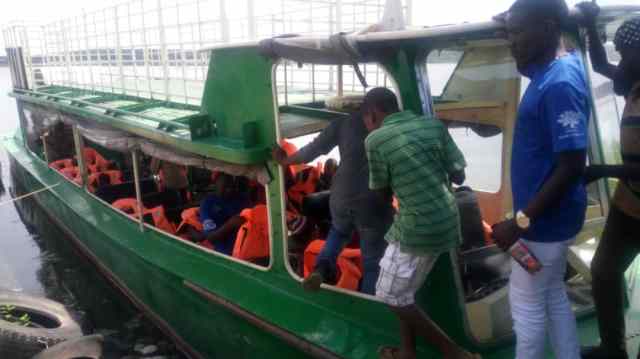THEME: ENGAGING THE YOUTH INTO AGRIBUSINESS THROUGH THE USE OF INFORMATION AND COMMUNICATION TECHNOLOGIES (ICTs).
St.Mary’s College Kisubi (SMACK) held its first edition of an Agribusiness Youth conference that took place from 7th December to 15th December and attracted over 200 participants from different primary and secondary schools around the country, of which the majority were between 13 -20 years old and others were teachers and support staff.
 We thank all our sponsors; Uganda Communications Commission(UCC) through RCDF, Ashoka East Africa, Vivo(Shell) Energy, Centenary Bank, Resilient Africa Network(RAN), Uganda Biosciences Center(Ubic), Makerere University-College of Computing, Kyambogo University- Faculty of Vocational Studies, UCU Mukono University-Faculty of Science, NARO-TAAT team and all the parents who sponsored their children.
We thank all our sponsors; Uganda Communications Commission(UCC) through RCDF, Ashoka East Africa, Vivo(Shell) Energy, Centenary Bank, Resilient Africa Network(RAN), Uganda Biosciences Center(Ubic), Makerere University-College of Computing, Kyambogo University- Faculty of Vocational Studies, UCU Mukono University-Faculty of Science, NARO-TAAT team and all the parents who sponsored their children.
We thank the different training groups that supported this initiative and all the farms that we visited. We thank all our guests and the media for joining us in this conference and hope our voices will reach many more Ugandans for the development of our country.
Rationale:
The conference brought together students and teachers from schools across the country to learn the different initiatives that they can be engaged in and share their learning with the other participants to enable all groups adopt and replicate models of proven approaches of farming back home and in using ICTs for agribusiness.
The participants at this conference used this opportunity to lay strategies towards rebuilding their school farms into model farms that not only feed the school and support education but also provide extension services to the surrounding communities. The teachers and students discovered that Agribusiness was a fertile ground for application of most of the concepts taught within the Computer Science curriculum at Ordinary level and the Subsidiary Information and Communication Technology curriculum at Advanced level and many other subject curricular in our Ugandan schools. The linkage between the technology skills taught and their application to the real world for the young is what we desire for all schools in Uganda and appeal to all organisations with a similar mind to join us in this initiative.
In undertaking this initiative, we had a focus on the many problems faced within the Agribusiness sector including; communication gaps, poor record keeping, inefficient extension service, un attractive farming systems dominated by the old and uneducated people and unemployment just to mention a few.
Our strategy was to engage the youth in thinking about solving the identified bottlenecks in Agribusiness through the use of ICTs with a target of enabling the youth to get involved in the development of ; mobile applications that are solving farmers’ challenges, specialised applications for farm accounts and other areas, farm management systems, farm journals that record the farm workers foot print, marketing tools such as blogs and the day to day work documents as well as business planning applications among others.
Activities that were undertaken during the conference:
- The participants were trained in the management and value chains of; Dairy and Animal Nutrition, Poultry, Piggery, Vegetables, Bananas, Beans and Farm machinery.
- The participants visited high value farms that practice scientific farming as well as institutional farms. This was intended to enable the youth to focus their minds towards creating change in their schools, at home and within their communities.
- The participants were trained in the use of ICTs in Agribusiness and how they can support collaboration and exchange of knowledge across communities. This training was conducted at three universities; Makerere University, Kyambogo University and Uganda Christian University Mukono.
- The teachers were encouraged in integrating ICTs for Agribusiness activities within their classroom lesson plans as a sustainability strategy to entrepreneurship skilling within our schools and communities.
- At the end of the conference all the participants took a tour of Queen Elizabeth National Park to learn more about how ICTs can be used to boost the agri-tourism sector.
Proceedings:
All the events were updated on the conference blog as they unfolded. The link to the blog is www.smackagribusinessblog.wordpress.com
- Day One
Merging with the official closing day of the school term was the opening day of the conference on 7th December 2018.
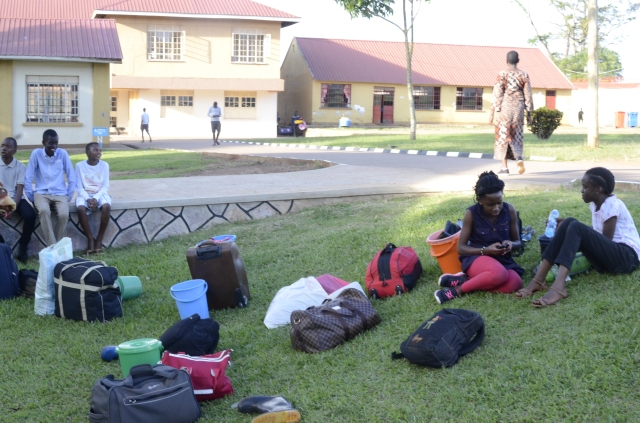




 The evening session started with registration for attendance since the participants were to be accommodated in the college quadrangle. At 5:00 p.m., the opening mass commenced, led by the college chaplain, Fr. Stephen Nyanzi.
The evening session started with registration for attendance since the participants were to be accommodated in the college quadrangle. At 5:00 p.m., the opening mass commenced, led by the college chaplain, Fr. Stephen Nyanzi.









 The night session was for the participants to prepare their sleeping grounds and plan their stay during the conference.
The night session was for the participants to prepare their sleeping grounds and plan their stay during the conference.
- Day Two
In the morning session, the Change Makers, clad in garden attire headed to the college farm in four groups and participated in the set agricultural activities. The study areas included; piggery, bananas, vegetables, dairy, animal nutrition and poultry. The students learnt management practices in each of these fields rotating from one area to another.
In the banana section the participants were taught preparation of the garden,carrying out different agronomic practices like mulching, weeding, pruning and manure application.
The participants were also introduced to the growing of High Iron Beans and the training was conducted by Dr. Stanley Nkalubo and his team.
The areas covered in the training of students at the bean demonstration field included the following;
- Bean breeding:
- Variety description and maintenance of genetic purity
- Hybridization (cross pollination) using flowers
- Bean Agronomic Practices:
- Land preparation
- Season timing
- Bean planting (seeding rate, spacing, row planting, depth of planting)
- Importance of using quality seed
- Weeding (earthing up)
- Identification and control of major Pests and diseases
- Importance of beans-with special interest to micronutrient enriched beans (high iron and zinc bean):
- As food
- Source of income
- Malnutrition (hidden hunger); Micro nutrient -iron and zinc and importance
- Other nutrients
In the Dairy section,training was led by Dr. Semambo Dan and the participants learnt alot including,management of calves to weaning,management of Heifers after weaning,organization of the milking parlor,mixing of Dairy Meal for milking animals,putting silage and dairy meal in the feeding trough,driving the milking cows to the milking parlor,milking the cows and proper milking methods,Artificial insemination and how to test for the pregnancy in cows.
The participants were also taught silage making to enhance animal nutrition. The participants were introduced to;land preparation for planting,pPlanting methods Maize/Napier grass for silage making,harvesting of Maize/Napier grass and silage making,types of Silos (Tube, Surface and Surface silos).
In the pig farming section,training was conducted by the primary school children from MST Junior Academy and we thank Dr. Naluyima and her team for training the young in agribusiness. The participants learnt about;management of the piggery,farrowing,processing new litter,treating sick animals,weaning,breeding,feeding and making feeds and record keeping.




 In the poultry unit, Mr. Kyanze a former teacher of Chemistry and now a great poultry farmer led the training assisted by one of the trainers from Smart Agribusiness company. The participants learnt about;brooding of Day Old Chicks (DOC) up to three weeks,preparation of the brooder,temperature regulation in the poultry house,adequate water in the Brooder,adequate light for the one-day old chicks,cleanness in the brooder (Feeders and water),vaccinations and Poultry management beyond three weeks.
In the poultry unit, Mr. Kyanze a former teacher of Chemistry and now a great poultry farmer led the training assisted by one of the trainers from Smart Agribusiness company. The participants learnt about;brooding of Day Old Chicks (DOC) up to three weeks,preparation of the brooder,temperature regulation in the poultry house,adequate water in the Brooder,adequate light for the one-day old chicks,cleanness in the brooder (Feeders and water),vaccinations and Poultry management beyond three weeks.




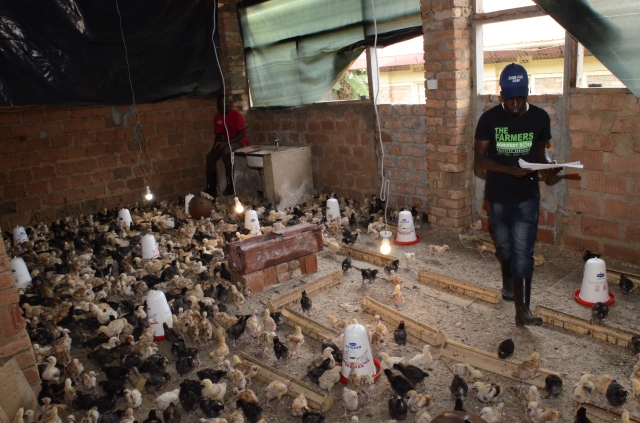


 The training in the vegetable field was conducted by Mr.Bukenya from Bombo Army High School together with the trainers from Smart Agribusiness forum. The students were trained in;carrying out different agronomic practices,transplanting different crops,practicing direct planting ,practicing container gardening using the local materials,carrying out simple irrigation techniques e.g. bottle irrigation and using other irrigation systems.
The training in the vegetable field was conducted by Mr.Bukenya from Bombo Army High School together with the trainers from Smart Agribusiness forum. The students were trained in;carrying out different agronomic practices,transplanting different crops,practicing direct planting ,practicing container gardening using the local materials,carrying out simple irrigation techniques e.g. bottle irrigation and using other irrigation systems.
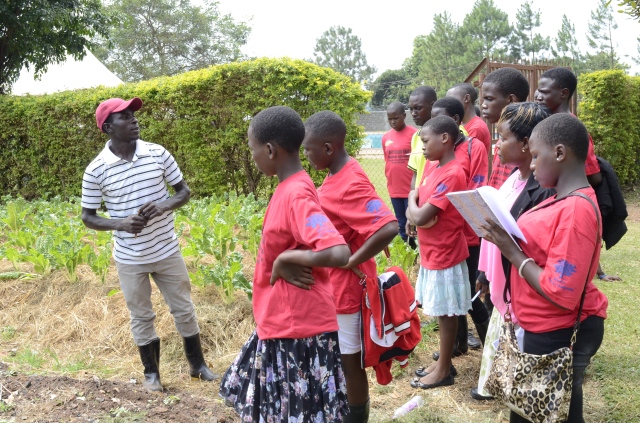

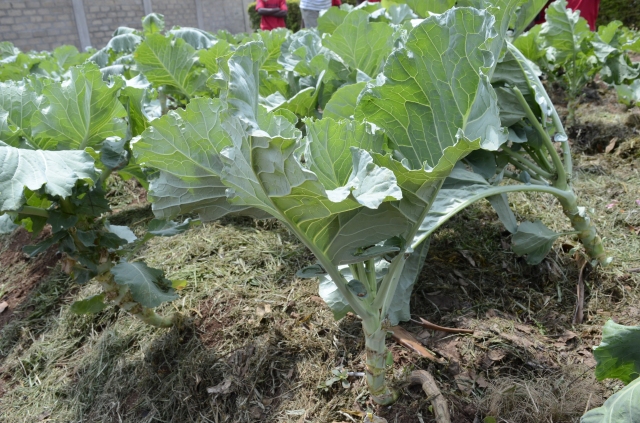





 The hour to lunch was occupied by the opening ceremony with speeches. We were happy to host the Mayor of Entebbe as our Chief guest, the Deputy Chief Administrative Officer-Wakiso District,the Agricultural Expert-National Curriculum Development Centre and our two volunteers from the Future Farmers of America(FFA) brought to us by the Catholic Relief Services(CRS) through the Farmer to Farmer(F2F) programme in Uganda.
The hour to lunch was occupied by the opening ceremony with speeches. We were happy to host the Mayor of Entebbe as our Chief guest, the Deputy Chief Administrative Officer-Wakiso District,the Agricultural Expert-National Curriculum Development Centre and our two volunteers from the Future Farmers of America(FFA) brought to us by the Catholic Relief Services(CRS) through the Farmer to Farmer(F2F) programme in Uganda.

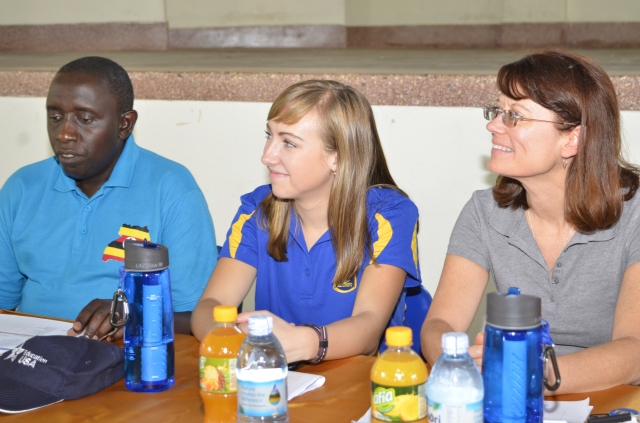




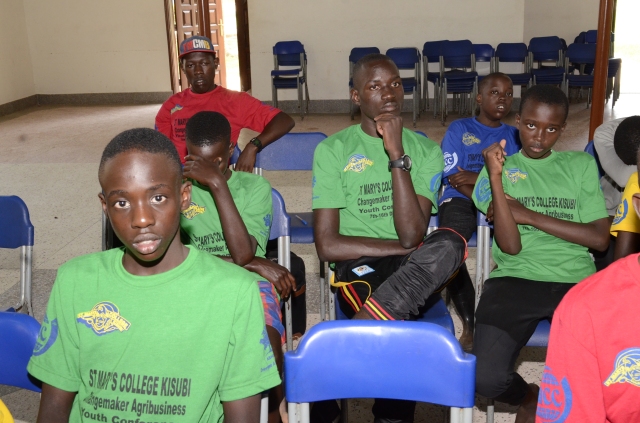 Mr. Alisengagha Geoffrey and Mr. Ddungu Ronald who was also the Chairman organising committee,inspired the attendees about the power of agribusiness in Uganda.
Mr. Alisengagha Geoffrey and Mr. Ddungu Ronald who was also the Chairman organising committee,inspired the attendees about the power of agribusiness in Uganda.

 The conference was opened by the Mayor of Entebbe who appreciated the organisers for bringing the youth together to rethink about the future of our country. He encouraged the participants to take whatever they were to learn back home and improve on the livelihood of the people in their communities and set up big businesses to provide employment to others.
The conference was opened by the Mayor of Entebbe who appreciated the organisers for bringing the youth together to rethink about the future of our country. He encouraged the participants to take whatever they were to learn back home and improve on the livelihood of the people in their communities and set up big businesses to provide employment to others.











 In the afternoon, the student leaders one from each of the 20 schools represented at the conference were invited to a leadership training conducted by volunteers from the Future Farmers of America. The rest of the participants continued with the training in the fields.
In the afternoon, the student leaders one from each of the 20 schools represented at the conference were invited to a leadership training conducted by volunteers from the Future Farmers of America. The rest of the participants continued with the training in the fields.






 The Catholic Relief Services(CRS) supported the conference by facilitating two volunteers from the United States Agricultural sector who are part of the FFA network. We were happy to host Dr. Nina Crutchfield from the National FFA Organization and Miss. Madison R. Taylor a former student leader in FFA.
The Catholic Relief Services(CRS) supported the conference by facilitating two volunteers from the United States Agricultural sector who are part of the FFA network. We were happy to host Dr. Nina Crutchfield from the National FFA Organization and Miss. Madison R. Taylor a former student leader in FFA.
The Volunteers started with engaging selected students through a leadership workshop and enabling them share personal experience in agriculture.
The student leaders from each school’s youth agriculture club/chapter around the country met during the first official day of the camp after visiting the school’s farm. During the workshop, the students reflected on what they had learned during their morning sessions. After some reflection, the students walked through the concept of finding a WHY in everything they do (especially in agricultural activities). The outcome was finding it easy to know WHAT and HOW to do something but learning to focus on WHY we do it. The students then proceeded to share about some of the activities their youth agriculture chapters do at their schools. Once they finished sharing, they were grouped up to DREAM about what they would like to have their youth agriculture clubs look like in an ideal situation. They focused on projects they could do/implement into their chapters, how to better their school farms, and ways to get more students involved. The students were excited to think about the possibilities of the youth agriculture organization at their school and ways to start new projects.
Recommendations: Continue to get the student leaders from each school together to collaborate with one another. Being able to share ideas and activities allows for greater thinking and cohesion among the chapters throughout Uganda.
In the night session, prospective individuals were tasked to present their business ideas in agribusiness in preparation to the competitive session that was to be held later on in the week.
- Day three
The day was supposed to start with a visit of some of the participants to a hatchery at 5:00a.m but due to the heavy rains with no power just a few managed to board the bus to the farm. The students were able to see the chicks hatch and the first management practices when handling a newly hatched chick. They then returned in time for breakfast and joined the other team that had started with Mass that Sunday morning.
Then after tea the Change Makers left the college to visit external farms that conduct education tours for youth. The participants boarded three buses destined on different routes and the following farms were visited:
Dr. Naluyima’s farm
Even in her absence, her team did a marvelous job in guiding the future farmers on basics of poultry rearing, banana management, fish and piggery. The highlight was the efficiency in water management at the farm which greatly minimized wastage. The projects surround a primary school called MST Junior Academy that teaches in line with practicality in agriculture. Amazingly, some pupils from this institution were facilitators in the college farm on day two.
Dr. Kabirizi’s farm
No smell of dung or other waste surprised many who got there and she unlocked her secret to ensuring proper sanitation. The participants were taken around her projects and minds were inspired and unlocked.
Ms. Rebecca’s farm
Her motherly care was witnessed by the group that visited her farm. The teacher-turned-farmer found gold in strawberries and shared with them her journey in farming. With the opportunity to contribute to the transplanting process, the group was so disciplined compared to other visitors, as reported by their host. She then allowed them to devour the juicy fruits that were already tempting them as a sign of appreciation for cooperation.
Gayaza High School farm
The group that visited the GHS farm was excited about different students’ agriculture projects having name tags to show the individual who owns them. This had been adopted to establish a closer relationship of students with their projects such that they care for them and make them proud of their efforts.
Dr.Nambatya’s Kwagala Farm.
At Kwagala Farm the participants learnt about value addition and how a small household can be organised as a functional business enterprise. There was a lot to see including the magical cow dung turned into biogas and the amazing bio slurry fertiliser. There was also the display of several mints that are dried and grinded into medicinal products for the better health of our people. The students were also introduced to community support programs visiting some of the outreach community projects run by the farm.
- Day Four
The day started off with a presentation by an official from Ashoka Fellows-Bryan, who had been assigned the duty of identifying the most powerful ideas that were to be pitched. He took the participants through some drills that were intended to make them more active and resilient to the challenges in life.


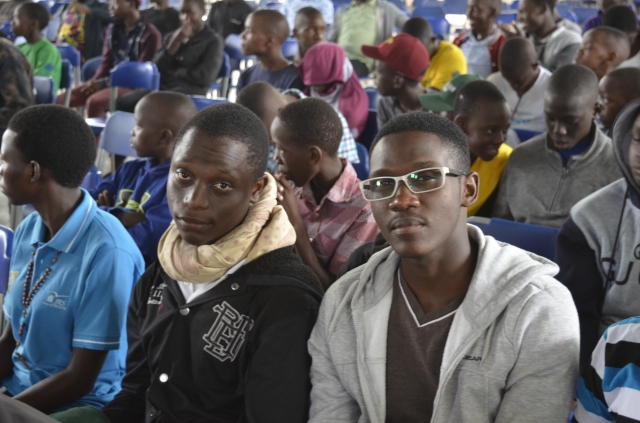







 Later on, Joseph Nkandu the Executive Director of NUCAFE delivered a memorable speech about how coffee has improved the life of millions of farmers in Uganda. He ended by donating two boxes of his company product, NUCAFE coffee to the Change Makers so as to energize them.
Later on, Joseph Nkandu the Executive Director of NUCAFE delivered a memorable speech about how coffee has improved the life of millions of farmers in Uganda. He ended by donating two boxes of his company product, NUCAFE coffee to the Change Makers so as to energize them.





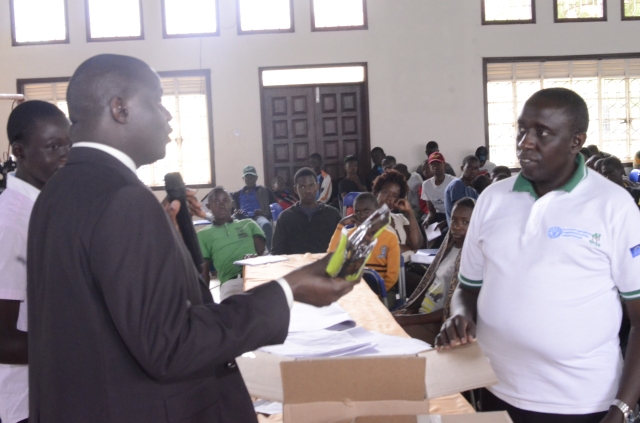


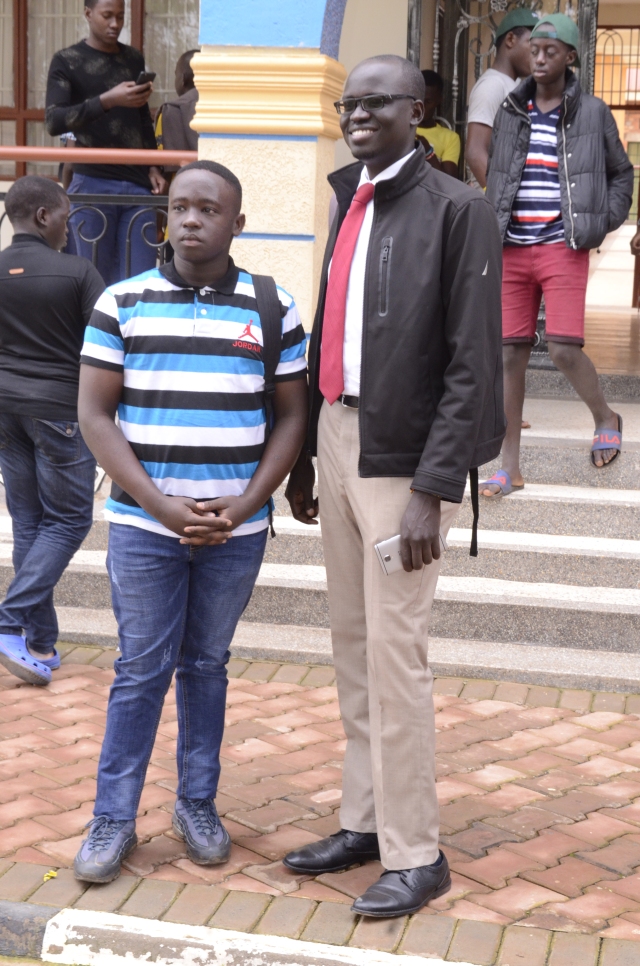

 The students who had projects to present were given an opportunity to do so and seven students were selected to be mentored by Ashoka and grow them into community youth leaders.
The students who had projects to present were given an opportunity to do so and seven students were selected to be mentored by Ashoka and grow them into community youth leaders.
Another powerful presentation was also made by an official from Rural Communications Development Fund, who shed more light on what ICTs are and their role in promoting agribusiness in the modern world.
The day’s sessions ended with Brigadier Kasura’s speech, who donated a cow to the college. He did speak to the teachers about the need to integrate Agribusiness in their day to day classroom work for the benefit of the students and in their personal activities to uplift their income. He later on spent some time with the students and encouraged them to learn the agricultural skills and support their parents develop good business ventures.
On the same day the teachers were engaged in a teachers’ workshop that was attended by over 50 teachers some of whom just came in that day for the workshop.
The volunteers Nina and Madison facilitated and supported a discussion on creating a collaborative Agricultural Education teacher network.
- Progress with the objective:
- Teachers and educators spent a day working through the Appreciative Inquiry method of strategic planning and implementation. They identified their own training needs related to adopting and implementing agriculture in their instructional efforts. Nine topics emerged from their efforts, prioritizing the top 6 for future efforts as well as individuals capable of providing the identified training.
Training needs, in order of greatest need:
- How to use available space and resources for implementation
- Technical ag content integration into academics
- Improving teaching skills to become student-centered rather than teacher-centered (Problem-based, project-based, & inquiry-based instruction)
- Communication, advocacy, & leadership training
- How to collaborate with community, parents, and administrators
- Digital literacy and ICT training
- How to create and manage agricultural experiential learning events
- Securing tools and materials for student projects
- Time was dedicated to the creation of the Teachers and Educators of Future Farmers of Africa-TEFFA. Offices were identified, volunteers secured, and elections held. The first TEFFA officers include:
Chair: John Paul Mutesa
Central Region Vice Chair: Christopher Othieno
Northern Region Vice Chair: Francisco Anyama
Eastern Region Vice Chair: Diana Nalubega
Western Region Vice Chair: Moses Baingana Kakooko
Communications: Moreen Aliku
Finance & Project Officer: Brian Kibirige
The Board of Directors is being established but currently identified seats include:
Ronald Ddungu
Mathias Mutema Mulumba
Dr. Daniel Semambo
Teddy Najjemba
Elected Chairperson (John Paul Mutesa)
Elected Finance & Project Officer (Brian Kibirige)
- Time was spent, with educators and YoFFA leaders, brainstorming the creation of agricultural competitive events designed to motivate students to learn agriculture while measuring learning outcomes, teamwork, communication skills, agriculture technical skill attainment, recordkeeping, and innovation.
- Expected impacts/results:
- The new TEFFA officers are charged with creating a way to deliver the professional development the teachers desire.
- The new TEFFA officers are charged with beginning the creation of competitive events to engage the students, using the brainstorming of the teacher and students as a starting point.
- The new TEFFA officers are charged with taking the agriculture in education initiative forward for adoption by schools across the country.
- Recommendations:
- Continue seating the Board of Directors. The Board will be instrumental in shaping the future of the organization and helping the newly elected officers follow through with their 3 charges. We hope to use assistance from CRS with forming a constitution and by-laws, seating the board, and educating the volunteers regarding their roles to accomplish the identified objectives.
The volunteers further facilitated and supported a discussion on Implementing/Growing Agricultural Education clubs in schools-Youth Future Farmers of Africa ( YoFFA).
- Progress with the objective:
Model YoFFA teachers were identified and then enlisted in a round-robin rotation. The chapter patrons shared their efforts to start their YoFFA clubs, their best practices, and challenges with their fellow teachers. The others were able to hear from teachers at Gayaza High School, MST Primary School, Bombo Army and St. Mary’s College Kisubi.
Expected impacts/results:
Teachers will take the information back to their schools and either start a new YoFFA chapter or improve the one they already have.
- Recommendations:
Provide this sharing opportunity, with more time allotted, at all future agriculture and professional trainings where teachers are present. Teachers love learning from other teachers who are successful. This is the best route for accelerating adoption of YoFFA in schools. It could also be beneficial for the club leaders to interact with the teachers, sharing what they are learning and how they are creating student-centered activities to engage members.
- Day Five
The conference objective was to introduce the youth to the use of ICTs in the development of the Agribusiness sector. We would like to thank Resilient Africa Network for partnering with us to provide an introductory session of designing a Mobile Application that can support a development area. A team of 9 facilitators was set up to support this training in three different universities. https://www.ranlab.org/
This was the day for the hands-on approach of ICTs, as the Change Makers set out to; Makerere University, Kyambogo University and Uganda Christian University-Mukono.
While in their respective computer laboratories, they had an opportunity to design a sample mobile application using MIT App Inventor software and realized how easy and fun it is.

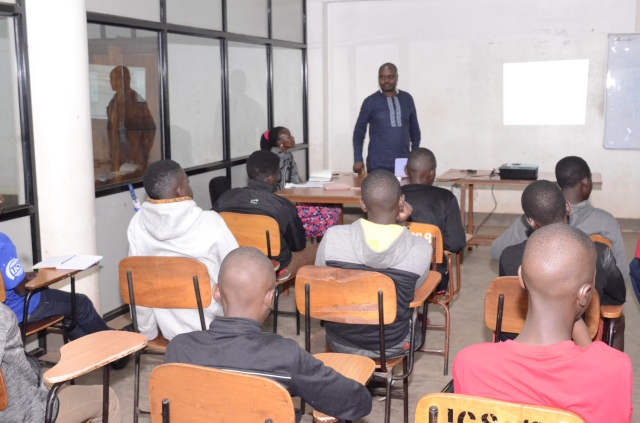












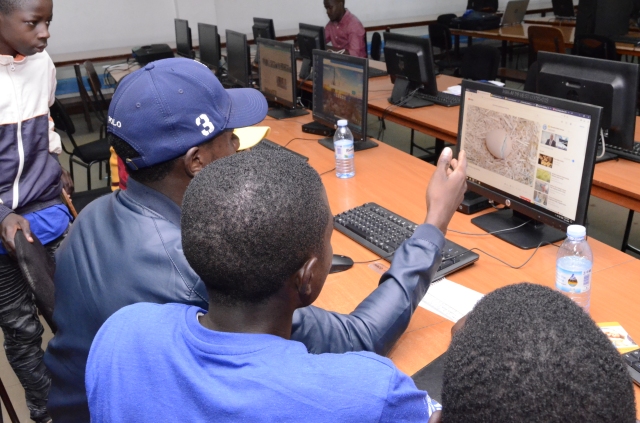


 On the same day another workshop was held for the leaders of education and agriculture in various government areas. The volunteers facilitated a workshop for officials from the Kampala Capital City Authority(KCCA) and Entebbe Municipality using the Discover, Dream, Design, and Destiny technique.
On the same day another workshop was held for the leaders of education and agriculture in various government areas. The volunteers facilitated a workshop for officials from the Kampala Capital City Authority(KCCA) and Entebbe Municipality using the Discover, Dream, Design, and Destiny technique.
- Progress with the objective
There were 5 educators and Dr. Semambo present at the meeting. Ms. Rita Kainemirembe working with KCCA and Daniel Ndagga with Entebbe Municipal School Council were able to participate. Time was spent with these 2 individuals discussing opportunities to engage with their schools and students regarding education in agriculture. Madam Kainemirembe shared that she understood they were missing an opportunity to engage their primary students in their KCCA farm and would work to remedy it. She also shared that their district budgets have been set for 2019 and would begin working on 2020 in Feb. It would be likely it will be 2021 before any resources could be dedicated to any district wide initiative.
Madam Kainemirembe requested the team to start making efforts to introduce the concept by participating in their head teacher trainings. She believed that it will take multiple exposures to introduce the concept to gain adoption by the educators.
Mr. Ndagga agreed and ensured he is supportive of the efforts but needs more concrete marketing materials to begin introducing the initiative in his district. After Mr. Ddungu shared the mayor’s comments at the opening session, Mr. Ndagga seemed more interested.
- Expected impacts/results
In two years, with continued efforts by the TEFFA leadership team, the 2 school districts should have their teachers implementing agriculture concepts as outlined in their curriculums.
- Recommendations
- The TEFFA Board of Directors maintain communications with Madam Kainemirembe and Mr. Ndagga in an effort to participate in their head teacher trainings.
- The TEFFA leadership create tangible marketing materials to share the initiative with current and future stakeholders.
- Day Six
The last day of the first phase of the conference was occupied by a talk on financial literacy by Ms. Joy Mukisa of the Private Education Development Network, and this was after an interactive talk by a representative from National Agricultural Research Organization.
The student leaders started the day with a planning workshop facilitated by the volunteers.
The volunteers worked together to deliver more strategic planning sessions to further develop the youth and teacher organizations in Agriculture Education.






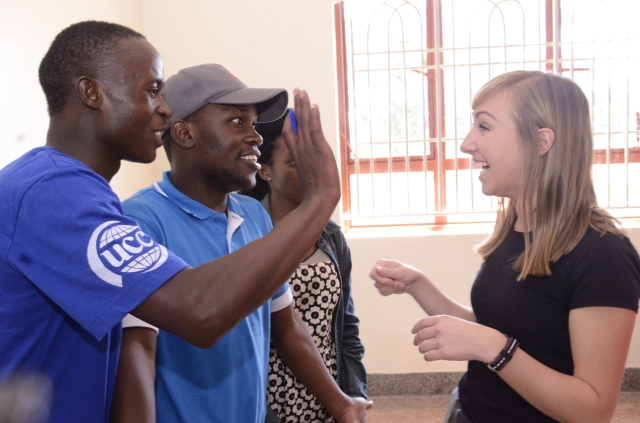

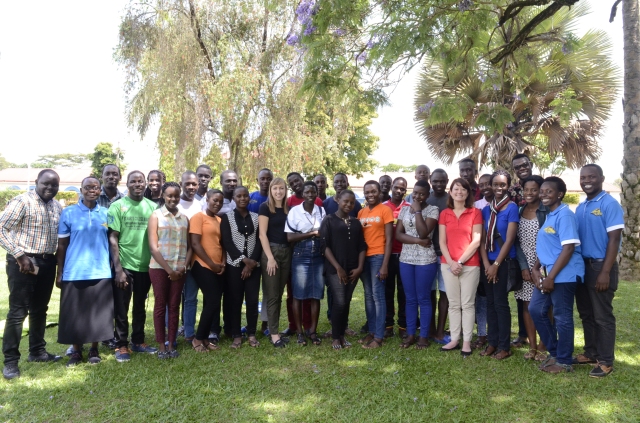
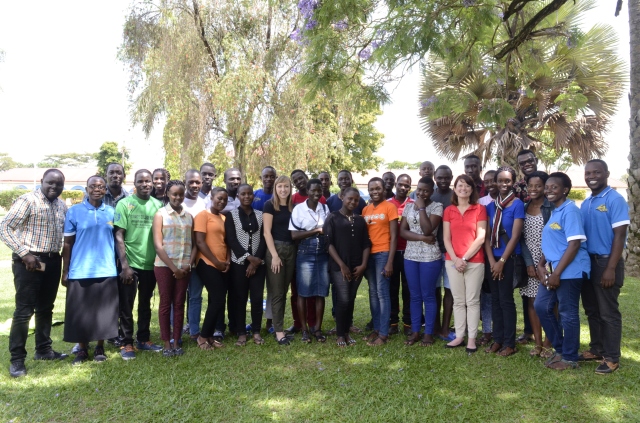







 In progress, students started developing a working program of activities for their YoFFA chapters to do throughout the year. The students were given three areas to develop activities around; Entrepreneurship, Leadership and Service. Within these three categories were subcategories, in which they came up with ideas/activities their YoFFA chapters could be more involved in.
In progress, students started developing a working program of activities for their YoFFA chapters to do throughout the year. The students were given three areas to develop activities around; Entrepreneurship, Leadership and Service. Within these three categories were subcategories, in which they came up with ideas/activities their YoFFA chapters could be more involved in.
- Entrepreneurship
- Community collaboration
- ICT Innovation
- Leadership
- Student collaboration
- Recreation
- Recruitment
- Service
- Caring for poor
- Caring for the environment
Through brainstorming activities and presenting what some chapters have done in the past, the students created ideas for each of the subcategories and came up with all the details for two of the activities. The details included what, when, where, who, purpose etc. The students then placed their flushed-out activities on a calendar to see them written down amongst other group’s ideas. They were encouraged to bring these ideas and activities back to their chapters when they start school in 2019 and get them implemented in for the new year and further develop the rest of the activities that had come up with for each of the categories.
Recommendations: We recommend that the student leaders in each chapter continue to work with their teachers and patrons to develop a full program of activities based around the three categories stated above as well as implement competitions into their clubs and camps. We also would recommend working with other chapters/schools in the area to collaborate on events or activities chapters are doing.
| Recommendation | Specific Action | Responsible person | By when |
| 1. Create a leadership camp with each chapter’s student leaders, to gain knowledge and skills to bring back to the chapter to further engage members. | Work with CRS and Farmer to Farmer to create a scope of work and find a team of leaders from the United States to facilitate an entire camp based around leadership, so the chapter leaders can take the ideas and concepts back to their school. | TEFFA, Board of Directors and CRS. | By the end of 2020 |
| 2. Have collaborative meetings with the school’s chapter leaders whenever holding an event or camp. | At each Gayaza Farm Camp, St. Mary’s College Kisubi Agribusiness Conference and any additional regional or national conferences have a morning or afternoon session for each school’s chapter leaders to collaborate and share ideas of what they have been working on and create plans for future events. | TEFFA and directors of camps. | The next Gayaza Farm Camp/or additional regional camp being implemented. |
| 3. Students should take the lead in each of their youth agriculture chapters to further develop activities within Entrepreneurship, Leadership and Service. | Student leaders should take the program of activities outline they created around entrepreneurship, leadership and service and implement the ideas and activities into their youth agriculture chapters when school starts again. It should be student initiated and driven. | Student leaders and Patrons | Within the next year, by 2019 |
| 4. Continue to work toward creating competitive events to motivate students to be further involved in agriculture and YoFFA. | TEFFA should continue to work toward creating a few different competitions based around agriculture industries or commodities in Uganda for students to compete against each other at different regional or national camps/conferences. | TEFFA and Student leaders | By 2020 have 3-5 competitive events at camps for students. |
| 5. Design a conference book and appoint student small group leaders for the next camp | Create a conference guide book with questions and writing prompts centered around the intended learning objectives of the camp and what they can expect to see at the farms/park visited.
Design a way to appoint student small-group leaders in an effort to facilitate logistical pieces and hold students accountable for learning. |
Farm Camp directors/teachers participating | Next Gayaza Farm Camp |
| 6. Have designated/built in reflection time using guide booklets after agricultural activities or events, such as visiting farms and the national park. | Build in time to do a reflection after activities throughout the camp or agricultural event using guide book created (see recommendation 5). This allows students to talk about what they have learned and ways they can take what they learned and show others at school or at home in their communities. For example, after the farm tours, the youth leaders/teachers could lead discussion on what had gone on throughout the day. Ask processing questions to get students thinking and reflecting on what they had done during the activity or event. | Student leaders/teachers | After the next agricultural event or camp where students partake in such activities like farm visits. |
Exhibitions were then staged outside the main hall to showcase milestones and critical research information by the two organisations.
The first part of the conference was closed on Wednesday 12th December 2018 at 3:00p.m and the Minister of State in the Ministry of Gender in charge of Youth affairs, Ms. Nakiwala Kiyingi was the guest of honor at the closing ceremony. She encouraged the youth to take the learning back home and begin some projects that would enable them to learn how to make money and become self-reliant.
The evening of the day was crowned with a dinner that capitalized the day.
- Day 7
The Change Makers woke up very early and got ready for the trip to the national park that had a stopover at Mr. Nyombi Tembo’s Farm. He has a forest farm on over 700 acres and the participants walked some distance into the forest to their amusement. He was later to give a nice talk about planning for the future and his sense of humor kept the message alive. He hosted us to lunch in his compound and provided refreshments to the participants.
We then left and headed for Queen Elizabeth National Park and freshened up for the next day. We thank the management of UWA for giving us free entry to the park and for hosting us for the time we were there.
- Day 8
The excited Change Makers had a game drive around the park and managed to see elephants, antelopes, buffaloes and warthogs.
Then the group was split into two; with one experiencing a boat ride while the other visited the park museum. On return to the base, lunch was served and the return journey commenced. We arrived tired and just went to sleep.
- Day 9
The participants woke up early to park and pick a cup of tea ready to go home. Certificates were awarded to each individual after submission of their evaluation about the conference and departures followed.
The volunteers participated in some of the activities designed for the Youth during the National Park tour and identify opportunities for incorporating more learning areas in order to grow stronger advocates for Agricultural Education in the country.
- Progress with the objective
The trip was a long one. Students were engaged along the way as Madam Katie shared various geographic and geological pieces over the loud speakers and tied them to agricultural practices in the area. The group stopped at Camp George and listened as the former minister-Hon.Nyombi Thembo shared words of wisdom and his vision for the farm he is growing.
- Expected impact/results
Many students were impressed with the former minister’s story of starting with very little and now creating a plantation. In addition, the ties between geology and agriculture were appreciated. Reportedly, one student from Fort Portal is now requesting his parents take him to their home village so he can survey their land and look for ways to improve their banana crops.
- Recommendations
- There needs to be more educational strategies implemented during the National Park tour. Time was compressed because of the schedule but valuable learning opportunities could be designed in the future.
- Perhaps a conference guide-book/pamphlet/booklet could be created. I could contain guiding questions for the speakers/farmers they encounter throughout the camp, as well as information/data regarding the farms/park they visit. All of the prompts in the conference book should align to the educational standards students are expected to learn at the camp. Making those items more transparent to the students will increase their learning.
- It would also benefit the students to have small group leaders. These leaders can assist with logistics of moving students from conference piece to conference piece, back on busses, getting up in the morning, getting meals. I imagine them something like the school prefects: older, mature, responsible students the others can look up to and can be trained to be student leaders among their peers.
Teachers and Educators agreed on action plan.
| Recommendation | Specific Action | Responsible person | By when |
| 1. Continue seating the TEFFA Board of Directors. The Board will be instrumental in shaping the future of the organization and helping the newly elected officers follow through with their 3 charges. | Determine who should serve on the board and then enlist representatives. | Ronald Ddungu | Spring 2019 |
| 2. Provide the opportunity for current YoFFA patrons to share how they formed their chapter at all future agriculture and professional trainings where teachers are present. Teachers love learning from other teachers who are successful. This is the best route for accelerating adoption of YoFFA in schools. | Design a workshop to be conducted at all events where teachers will be present. Identify a facilitator. | TEFFA leadership | Gayaza Farm Camp 2019 |
| 3. The TEFFA Board of Directors maintain communications with Madam Kainemirembe and Mr. Ndagga in an effort to participate in their head teacher trainings. | Ongoing | TEFFA Board of Directors | ongoing |
| 4. The TEFFA leadership create tangible marketing materials to share the initiative with current and future stakeholders. | Create tangible documents and even media items to be shared | TEFFA leadership | Spring 2019 |
| 5. TEFFA create competitive events to motivate students to learn agriculture | Use the brainstorming work by the teachers as a starting point for creating identified events | TEFFA leadership | Gayaza Farm Camp 2019 |
| 6. Design a conference book and appoint student small group leaders for the next camp | Create a conference guide book with questions and writing prompts centered around the intended learning objectives of the camp and what they can expect to see at the farms/park visited.
Design a way to appoint student small-group leaders in an effort to facilitate logistical pieces and hold students accountable for learning. |
Farm Camp directors/teachers participating | Next SMACK Farm Camp |
Observations:
The conference was educative and more interactive since the participants were out in the field physically experiencing what they learn in class. Participation by the Change Makers was great and some of the observations included the following:
- Discipline of participants.
- Good feeding
- Security
- Conducive college environment.
- Wi-Fi
- Open learning and sharing.
- Use of phones to engage the youth in agribusiness, which sparked critical thinking in those who attended
Challenges
- Poor time management by the Change Makers
- Limited Wi-Fi that frustrated real time updates
- Littering of the environment
- Mosquito plague
- Minor cases of theft
- Challenges face by media team:
Limited time to complete the proposed official platform since the team is composed of senior six candidates.
Device malfunction with slowed down the process if taking pictures.
Recommendations
Refining the blog to tell a complete story about the whole conference as the media team works on the official platform.
- Launching the Change Makers Network to establish relationships between students and successful farmers.
- Aggressiveness in time management.
- Taking on the project to other schools.
- Early preparations by the technical team to ensure smooth flow of activities.
- Frequent checkups to curb theft completely.
- Online Magazine for the Change Makers conference.
- For the media team; financial assistance in procuring a new laptop and strong camera.
Vote of thanks
The organizing committee extends sincere appreciation to the attendees for their good conduct and cooperation, and so implores them to be regular participants in the annual event. We would also like to thank the management of St. Mary’s College Kisubi for accepting to host this conference and we hope it will grow into an annual event. We thank the teachers who were part of the organising team from the very start for the valuable contributions in terms of ideas and relevant information.




